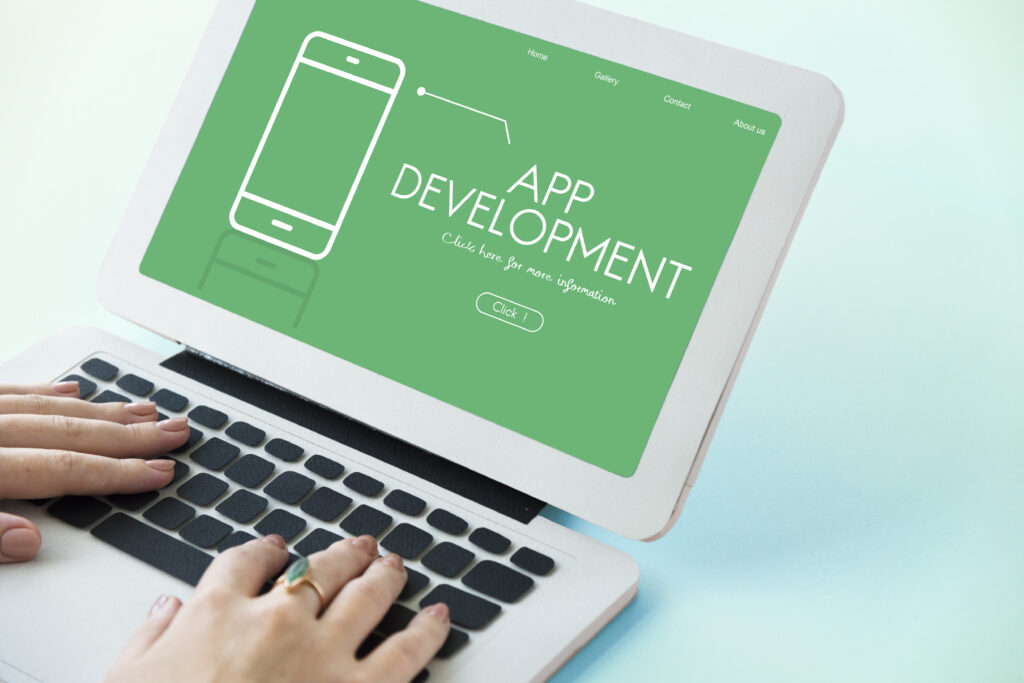
App Development Trends in Dubai
Introduction
Dubai has long been recognized as a city of innovation, vision, and rapid technological growth. In the past few years, it has become a hotspot for mobile app innovation, attracting entrepreneurs, tech firms, and startups from around the world. As consumer expectations evolve and digital transformation accelerates, the spotlight is now on app development in Dubai — and more specifically, how artificial intelligence (AI) is shaping its future.
From smart city initiatives to personalized mobile solutions, Dubai is setting a benchmark for how AI can be seamlessly integrated into mobile applications. In this blog, we’ll explore the top trends defining the app development landscape in Dubai, with AI as the central driving force behind this transformation.
1. AI-Powered User Personalization
One of the most impactful shifts in app development today is the emphasis on hyper-personalization, and AI is the enabler. In Dubai, businesses are using AI to analyze user behavior, preferences, and usage patterns to deliver customized experiences.
Whether it’s a shopping app recommending the right products, a food delivery platform adjusting to dietary choices, or a travel app curating packages based on past interactions, AI is helping companies craft apps that feel personal and intuitive.
Key Features Emerging:
- Real-time content adjustments
- Predictive search and suggestions
- Behavior-driven interfaces
- Smart recommendation engines
Dubai-based e-commerce platforms and lifestyle brands are already deploying these capabilities to improve engagement and retention.
2. Voice Search and Conversational AI
As smart assistants like Alexa, Google Assistant, and Siri become standard, voice-powered interactions are becoming expected in mobile apps. Developers in Dubai are integrating voice-based navigation and conversational AI into their platforms to offer hands-free, intelligent, and natural user experiences.
In a multicultural, multilingual city like Dubai, this also involves building NLP (Natural Language Processing) solutions that can understand and respond to both English and Arabic with precision.
Common Use Cases:
- Voice-enabled shopping and search
- AI chatbots for customer support
- Virtual assistants for banking and health apps
- Voice translation tools in tourism apps
With Dubai’s focus on smart living, voice-first applications are quickly gaining traction in everyday services.
3. AI and Data Analytics for Real-Time Decision Making
Dubai’s businesses are increasingly investing in real-time data analytics to drive smarter decisions. AI-powered analytics within mobile apps is now being used to:
- Track consumer activity
- Forecast market demand
- Optimize in-app content delivery
- Prevent fraud and anomalies
Industries such as finance, logistics, and hospitality in Dubai are relying on these insights to improve service delivery, allocate resources more efficiently, and respond to dynamic market trends.
For example, fintech apps are using AI to deliver tailored financial advice based on user spending habits and risk profiles, all in real-time.
4. Integration of Augmented Reality (AR) and AI
The combination of AR and AI is transforming the way users interact with apps. In Dubai, the real estate, retail, and tourism sectors are adopting these technologies to provide immersive and engaging experiences.
For instance:
- Property apps allow virtual walkthroughs using AR, enhanced by AI-based personalization.
- Retail apps offer AI-driven facial recognition to suggest styles that suit a user’s face or body type.
- Tourist apps use AR overlays and AI-generated content to guide users through historic or cultural sites.
These features offer not just novelty, but utility, making apps more interactive and value-driven.
5. AI-Enabled Security and Fraud Detection
Security is paramount in mobile apps, especially in sectors like fintech, e-commerce, and healthcare. Developers in Dubai are turning to AI for intelligent fraud detection and user authentication.
AI-powered security tools:
- Detect unusual patterns in login behavior
- Analyze transaction risks
- Use facial recognition or biometric AI to authenticate users
- Enable anomaly detection to protect sensitive data
As Dubai pushes for secure smart city operations, such AI-led security measures are becoming an essential part of mobile application development.
6. Low-Code and No-Code AI Platforms
With growing demand for mobile solutions and limited technical resources, Dubai is seeing a rise in the adoption of low-code/no-code platforms, many of which now integrate AI capabilities.
These platforms empower business owners, marketers, and non-tech professionals to build AI-enhanced apps without writing complex code. This trend is especially beneficial for SMEs and startups that want to test and scale quickly without a high initial investment.
Features include:
- Drag-and-drop UI builders
- Pre-built AI modules (e.g., sentiment analysis, chatbots)
- Integration with popular cloud AI services
- Workflow automation with AI logic
This democratization of AI is accelerating digital adoption across industries in Dubai.
7. AI in Fintech and Digital Payments
Dubai’s fintech ecosystem is rapidly expanding. Fintech apps are being enhanced with AI to offer better user experiences, streamline payments, and ensure robust security.
Popular AI features in fintech apps:
- Robo-advisors for investment planning
- Credit scoring algorithms using behavioral data
- Real-time fraud detection
- AI-powered budgeting and expense tracking
As cashless transactions become more popular in Dubai, these AI capabilities are not just a value add — they’re becoming essential.
8. Smart City Integrations and IoT-Driven Apps
Dubai is a pioneer of the smart city model. Mobile applications are increasingly being developed to integrate with smart city infrastructure, enabled by AI and the Internet of Things (IoT).
Apps that support:
- Smart parking and traffic control
- Environmental monitoring (air quality, temperature)
- Energy usage tracking
- Public transportation and service integration
These apps collect and process massive amounts of data, which AI uses to provide actionable insights and real-time automation.
Dubai’s push to be one of the smartest cities globally means developers are building AI-connected apps that go beyond smartphones — integrating with wearables, home devices, and public networks.
9. AI in Healthcare and Wellness Apps
Health tech is another booming sector in Dubai. Post-pandemic, there’s a heightened focus on wellness, remote consultations, and preventive care — all of which AI supports efficiently.
AI-powered healthcare apps in Dubai offer:
- Symptom checkers and AI diagnostics
- Virtual doctor consultations
- Personalized health tracking
- Predictive risk alerts
- Mental health chatbots
These applications align well with Dubai’s digital health strategy and provide accessible solutions for a diverse population.
10. Sustainability-Focused AI Apps
Sustainability is a core focus of the UAE’s Vision 2031. Developers are leveraging AI to build apps that promote green living, energy efficiency, and eco-conscious consumer behavior.
Examples include:
- Carbon footprint trackers
- AI-powered recycling apps
- Smart home energy control platforms
- Sustainable shopping apps using AI for product insights
This emerging trend reflects how Dubai is encouraging businesses and individuals to make more responsible choices, and mobile apps are at the center of that shift.
Benefits of AI-Centric App Development in Dubai
With AI becoming a foundational part of mobile app strategy, businesses in Dubai are gaining:
- Improved Customer Engagement
- AI allows apps to adapt and respond based on real-time interactions, boosting user satisfaction.
- Operational Efficiency
- Automating repetitive tasks and using AI to analyze patterns reduces overhead and speeds up workflows.
- Greater Innovation Capacity
- AI opens doors for unique features that differentiate apps in a competitive market.
- Data-Driven Growth
- AI-driven analytics help companies make informed, measurable, and scalable decisions.
Challenges to Address
While the AI-driven app development landscape in Dubai is promising, challenges remain:
- Data privacy and ethical considerations
- High cost and complexity of advanced AI solutions
- Shortage of AI development talent
- Ongoing maintenance and model training needs
Dubai’s government is actively working on frameworks and collaborations to tackle these issues, fostering a more robust ecosystem for AI innovation.
How to Leverage These Trends for Your Business
To stay competitive and future-ready in Dubai’s growing digital economy, businesses should:
- Partner with AI-driven app development companies that understand Dubai’s market dynamics.
- Invest in user-centric design enhanced by AI-driven insights.
- Focus on long-term app scalability with cloud-native architecture and AI upgradability.
- Test and validate AI models carefully to ensure relevance and accuracy.
Choosing the right development partner can make or break the success of your mobile app in a tech-savvy market like Dubai.
Conclusion
The mobile app landscape in Dubai is undergoing a transformative shift, with artificial intelligence at the heart of it. From hyper-personalization to voice assistance, predictive analytics to automation, AI is redefining what users expect from mobile experiences.
As app development in Dubai continues to evolve, staying updated with AI trends will be crucial for startups, enterprises, and innovators looking to succeed in this fast-moving digital economy. The future is intelligent, and businesses that act early will be the ones leading it.
Whether you’re planning to launch your first app or upgrade an existing one, now is the time to explore how AI can elevate your mobile strategy in one of the world’s most forward-thinking cities.




